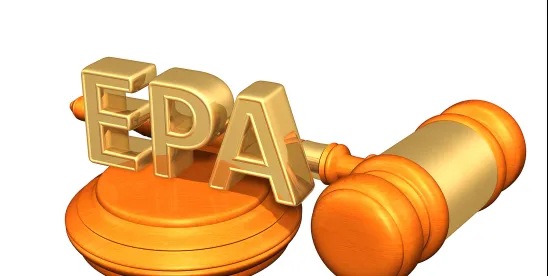The U.S. Environmental Protection Agency (EPA) recently updated its website to include two petitions submitted under Section 21 of the Toxic Substances Control Act (TSCA) that seek reconsideration of exemption provisions of EPA final risk management rule for trichloroethylene (TCE). On March 24, 2025, PPG Industries, Inc. (PPG) submitted a petition seeking an amendment to the December 2024 final rule’s exemption for the industrial and commercial use of TCE as a processing aid for specialty polymeric microporous sheet materials manufacturing that would allow PPG to meet an interim existing chemical exposure limit (ECEL) of five parts per million (ppm) and an action level of 2.5 ppm. According to the petition, “[o]ne of PPG’[s] specialty materials is the Teslin substrate, a unique polymeric microporous sheet material that is a fundamental component of a wide range of products used in everyday life.” PPG notes that although EPA “granted a 15-year TSCA Section 6(g) exemption for Teslin on the basis that PPG’s use of TCE in the Teslin manufacturing process is a critical and essential use for which no technically and economically feasible safer alternative is available in accordance with TSCA Section 6(g)(1)(A),” the final rule “also imposes an unachievable interim ECEL of 0.2 ppm on PPG during the exemption period, as well as an action level of 0.1 ppm.” EPA’s May 9, 2025, letter acknowledging receipt of the petition states that it will either grant or deny the portions of the petition eligible for TSCA Section 21 within 90 days of the date the petition was received (i.e., by June 22, 2025).
On April 30, 2025, the Alliance for a Strong U.S. Battery Sector (Alliance) and Microporous, LLC (collectively, Petitioners) submitted a TSCA Section 21 petition for reconsideration of and revisions to the final TCE rule. According to the petition, because there is no feasible alternative to TCE in manufacturing lead-acid battery separators, EPA determined that banning the use would “significantly disrupt national security and critical infrastructure.” While the final rule granted U.S. battery-separator manufacturers a 20-year exemption from the TCE ban, the exemption “includes such onerous conditions on the continued use of TCE that it effectively functions as a total ban.” To continue using TCE, battery-separator manufacturers must either reduce TCE exposure levels to the interim ECEL of 0.2 ppm, “a level roughly 30 times below what European regulators allow and what can be achieved using state-of-the-art engineering and administrative controls — or else equip exposed workers in respiratory personal protective equipment (“PPE”) that EPA admits creates health and safety hazards and that the record demonstrates cannot feasibly be worn all day, every day by employees in these manufacturing settings.” Petitioners request that EPA revise the final rule to increase the interim ECEL to six ppm and extend the length of the duration from 20 to 25 years to account for the time required to research, develop, test, and obtain approvals for any alternative to TCE in battery-separator manufacturing. EPA’s May 9, 2025, letter acknowledging receipt of the petition states that it will either grant or deny the portions of the petition eligible for TSCA Section 21 within 90 days of the date the petition was received (i.e., by July 30, 2025).




 />i
/>i
